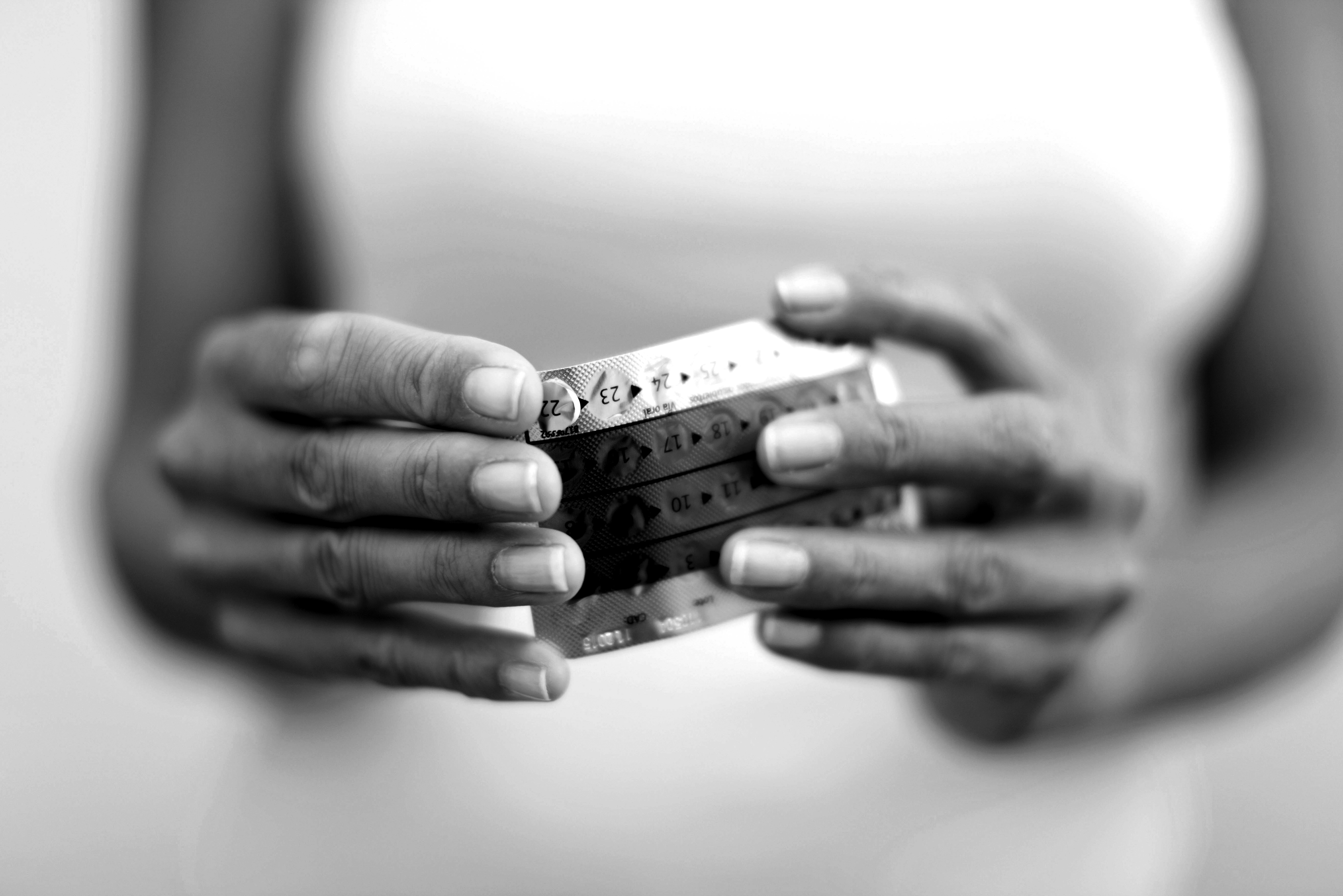How birth control almost ruined my life
I was anxious, sad, and crying. And then my hair started falling out.


A free daily email with the biggest news stories of the day – and the best features from TheWeek.com
You are now subscribed
Your newsletter sign-up was successful
In September, a Danish study published in JAMA Psychiatry found that women who use hormonal contraceptives are more likely to be officially diagnosed with depression, or to use anti-depressants.
My reaction? Duh.
I was in my 20s when I started using oral contraception. I had gotten pregnant at 18, and at 19, delivered a beautiful, healthy baby boy. As a single teenage mother working and attending college, I was terrified of getting pregnant again, so despite my fear of the unknown effects of hormonal birth control, I opted for the pill.
The Week
Escape your echo chamber. Get the facts behind the news, plus analysis from multiple perspectives.

Sign up for The Week's Free Newsletters
From our morning news briefing to a weekly Good News Newsletter, get the best of The Week delivered directly to your inbox.
From our morning news briefing to a weekly Good News Newsletter, get the best of The Week delivered directly to your inbox.
My gynecologist was a cheerful, overly friendly man with cul-de-sac hair recession and a red sports car. "You will love this!" he mansplained to me while writing my prescription. "It's going to allow you to have all the sex you want with no negatives, and no babies." Sounded great to me.
Hormones have incredible, awe-inspiring powers: They can spiral DNA into a brand new human being. They can cause the breakdown of your entire reproductive tract. They can cause cancer, produce cysts, and ferment like a witches brew. Hormonal birth control works by altering these hormones. It delivers synthetic progestin and estrogen throughout the body, preventing a woman's ovaries from ovulating. Without an egg, there can be no pregnancy. The hormones also alter the cervical mucous, making it more difficult for sperm to traverse the cervix and womb on their way to the fallopian tubes and into the ovaries.
A few weeks after starting the pill, my body started to feel strange. I felt hyper, and I had sweeping sensations down my arms and legs, as if every cell was overtuned and vibrating. I also started having sudden and inexplicable mood swings. I would be stable and calm one minute, and depressed and frustrated the next.
At first, I shrugged it off as stress. But over a few weeks, my symptoms intensified. My mood swings appeared out of the blue and disappeared just as mysteriously. I would burst into tears in the time it took to open my door and step outside. I would be overwhelmed with feelings of intense despair and hopelessness, only to be pulled back into a more manageable, dull sadness.
A free daily email with the biggest news stories of the day – and the best features from TheWeek.com
After a few months of this madness, I was desperate for some sanity. So I went off the pill. A week later, I felt like myself again: a bit anxious and neurotic, but happy-ish, and only overwhelmed with despair when there was reason to feel so. For the next few years, I stayed away from hormonal contraception, opting instead for condoms. When I went back to that same gynecologist, he mentioned I might want to try something called Depo-Provera. "You could just get a shot in your arm," he said, eyebrows waggling cheerfully. "BOOM! You're good to go."
I was young, sexually active, and I really, really didn't want another unplanned pregnancy. So I decided to give it a try.
The shot was administered in my upper arm, and it hurt enough for my eyes to glisten, but it was over quickly. And just like that, I went from worrying daily about birth control to having to think about it just once every few months. I was elated.
But then, I started to cry.
I am a person who cries somewhat regularly. I think crying is healthy, and I feel deeply. But on Depo-Provera, I cried every day over the smallest of transgressions. If a person bumped into me at the local Starbucks and didn't acknowledge my existence? Tears. A little boy who misses his mom at school? Big gulps. Tiny sparkles of light and long shadows over the face of my love? Waterworks. A raccoon scrounging for food in the suburban bushes? Even this had me bawling.
The tears were followed by something even more traumatizing: My hair started falling out. In the shower, I'd run my fingers through my locks and find my hands covered in hair. My bathroom sink clogged. Was I sick? I was certainly afraid.
At the urging of my concerned mother, I decided to finally do some long-overdue research. I connected the dots: Hormonal birth control was screwing with my body — and my mind. When my roommate, who was also on Depo-Provera, pulled me aside one day to reveal a tangerine sized bald spot in the thick of her glorious, dark hair, that was it. Since then, I've gone off hormonal birth control for good. It wasn't worth my sanity (or my hairline).
Going off of all hormonal birth control was the best choice for me. It wasn't ideal when it came to actually preventing pregnancy — a few years after I quit the pill, I was pregnant again with a beautiful baby girl — but it was the right decision for my physical and mental health, both short- and long-term. And I know that when it comes time to talk with my kids about safe sex and pregnancy prevention, I will explain why hormonal birth control might not be a good idea, and advocate for other forms of contraception.
Maggie May Ethridge is the author of Atmospheric Disturbances: Scenes From A Marriage (Shebooks, 2014). A freelance writer, her work has appeared in Guernica, The Guardian, Marie Claire, Cosmopolitan, The Fix and The Establishment, among many others. Her novel, Agitate My Heart, is in final edits.
-
 How the FCC’s ‘equal time’ rule works
How the FCC’s ‘equal time’ rule worksIn the Spotlight The law is at the heart of the Colbert-CBS conflict
-
 What is the endgame in the DHS shutdown?
What is the endgame in the DHS shutdown?Today’s Big Question Democrats want to rein in ICE’s immigration crackdown
-
 ‘Poor time management isn’t just an inconvenience’
‘Poor time management isn’t just an inconvenience’Instant Opinion Opinion, comment and editorials of the day
